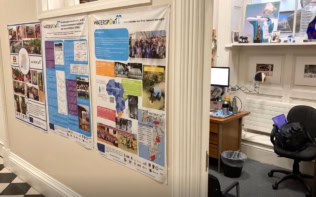Robert P Crease explains why science is never an idealized process that operates following simple rules
“Can’t we make science more efficient?” a physicist asked me recently. Here’s what often happens, he said, especially in speculative areas. Someone proposes a theory and – to ground it in reality and attract interest – makes a prediction. Experimentalists then set to work.
Guess what usually happens next? A banquet of interpretations! The experimental findings are judged inconclusive. The theorist reworks the theory or calls for more experiments. Other experimentalists jump in with new experiments that disprove the first, but with flaws of their own. Theorists refine the theory to incorporate the initial findings, rethink the theory or produce rival theories.
My physicist-friend cited half a dozen or so recent episodes. “End the interpretations!” he demanded. “Wouldn’t it be more efficient to get everyone in a giant room to thrash out specific predictions and exactly how to test them?”
Against interpretation
I sympathized. Yet I had to tell him that an affirmative answer would be possible only if science were akin to that erstwhile TV game show Concentration, in which contestants make clear-cut guesses regarding the answers to well-formulated questions – and no sooner is a guess formulated than offstage technicians activate a video screen to reveal the equally clear-cut answer. Science, in this idealized view, always consists of well-formulated theories and perfectly set up experiments.
Theories, however, do not necessarily make clear-cut predictions. As I’ve written before in this column, theories organize what we’ve learned, frame the present and orient us by indicating important areas for future research. They come in many forms and play many roles. Some make exact predictions, while others – evolution, for instance – are open-ended.
Experiments, meanwhile, do not necessarily have clear-cut outcomes. They are conceived, staged and performed without knowing beforehand exactly what will happen – that’s why we do them! Nature is always deeper and richer than the concepts through which we understand it, and the possibility is always open that experiments will disappoint, confuse or mystify us. When they do, it initiates an interpretive process in which we try to adapt theory and experiment to understand the findings.
Let me illustrate with what happened to a theory – proposed in the 1960s by my colleague Fred Goldhaber and a collaborator – of how protons scatter at small angles off heavy nuclei. An experiment gave a result that could not be explained without making absurd assumptions about the shape of the nucleus. Discussions between participants revealed that the experimentalists had analysed their data by taking account of additional pre- and post-scattering interactions at very small angles of a proton beam on other nuclei in the target, which involved using a recipe that incorporated only Coulomb interactions and ignored nuclear interactions. The nuclear interactions, however, proved to be important in just the extremely small angle data addressed by the experiment and related theory in this case. When the very small-angle Coulomb-plus-nuclear scatterings were taken into account, the theory turned out to work fine.
This story illustrates, writ small, a process that commonly occurs in science. The theorists were not slipping up. Nor were the experimentalists. They were trying to frame what was significant about their findings: the principal scattering component. “You put in all the things you know are important at the time,” Goldhaber says, “but these may not be all the things you need later on.” Both theory and experiment turned out to be right, after additional discussion, exposure of untested assumptions and the incorporation of new distinctions to make explicit what was implicit in the findings.
Why, then, does the game-show view of science persist?
One reason is that scientists may be reluctant to admit the pervasive presence of interpretation for fear it makes science seem a matter of judgment, as if it is one person’s view over another’s – just another way of talking about the world. Philosophers who seek a merely formalistic approach to truth rather than one rooted in interpretation can also buy into the game-show model of science. The wish to shun interpretation is understandable but unnecessary, for we cannot perform experiments any way we like, and the experimental process exposes us to the stubbornness of nature – to something that our concepts and theories do not create but to which they must be accommodated.
A second reason is that, every so often, something like the game-show model actually seems to occur. A classic example is Einstein’s theory of general relativity. This story is messier in detail, but superficially enough like game-show science to satisfy those who yearn to believe.
A third reason is that both theorists and experimentalists tend to write up their work to fit the game-show mould, which among other things makes it more attractive to funding agencies. The media, meanwhile, love the game-show format because it is understandable, explainable, full of clear winners and losers, and makes science as exciting as…a game show.
In short, we are all co-conspirators in promoting the game-show model of science.
The critical point
My physicist friend’s lament, however, was partly driven by the desire to protect science.
For what happens when, inevitably, science doesn’t behave game-show-like? Then it looks uncertain or broken, beset by inefficiency and incompetence – and maybe even malpractice or fraud. Politicians who control science budgets may retaliate, especially if findings imply the need for costly political action. This happened three years ago, for instance, when publication of stolen e-mails of climate scientists provoked some US legislators to seek to slash science budgets.
So I answered my friend that we do get everyone in a giant room to thrash out questions and answers. That room is called science. But there are more than scientists present, and the challenge is to explain to everyone what is happening – without resorting either to the fiction of science as an ideal process, or to science being just another way of talking about the world.



